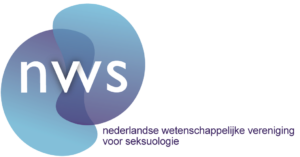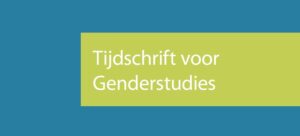STATEMENT
We stand together for academic freedom, inclusive science and human rights
We stand together for academic freedom, inclusive science and human rights
The recent executive orders by president Trump of the United States attacking gender language and inclusivity in science, are a direct violation of academic freedom and human rights. These actions of the current US administration threaten the very foundations of science, undermine knowledge progress, and marginalize vulnerable individuals, communities and populations, such as sexual and gender minorities, especially those of color, with migrant backgrounds, or refugees. As researchers, we are committed to guarding the foundational principles of academic freedom and inclusivity in both science and society, and advocate for the open exchange of knowledge that is essential for building resilient and sustainable societies.
We are deeply concerned about the impact of the recent executive orders of the present Trump administration about ‘wasteful diversity, equity and inclusion programs’ and ‘the recognition of only two sexes’. Both the biological reality of a wide range of intersex variations among humans, and the existence and lived experiences of transgender and other non-cisgender individuals are denied. It also has a profound impact on academic freedom. For example, the American National Science Foundation (NSF) has been asked to flag grants specifically for terms like ‘diversity’, ‘equity’, and ‘inclusion’. The temporary freezing of grant reviews for scientific research by the National Institutes of Health (NIH) has been eased, but scientists are still banned from public speaking, and programs are still being checked for violation of Trump’s executive orders. Furthermore, publicly available information and data from the Centers for Disease Control (CDC) has been removed and made inaccessible, and submitted scientific manuscripts mentioning flagged terms have been ordered to be retracted.
These actions have far-reaching and disruptive consequences that affect individuals, communities and societies worldwide. They profoundly undermine the very foundations of science: academic freedom, scientific integrity, inclusivity, and collaboration. This not only threatens the advancement of scientific knowledge but, more critically, it jeopardizes the human rights and well-being of vulnerable individuals, communities, and populations, by erasing the experiences, identities and needs of those who do not fit traditional binary categories of gender and sexuality. Excluding entire communities from scientific, educational, and medical recognition will not only deepen social inequalities but also deprive future generations of essential knowledge about sex and gender diversity, along with all societal activities where such knowledge is being put to practice. Such actions fuel misinformation, discrimination, and ultimately reverse decades of progress toward a more informed and inclusive society.
As scholars, sexologists and educators involved in scientific research on sexuality and gender, we advocate for inclusive sexual and reproductive health and rights throughout life for all individuals. As such, we strongly condemn all forms of gender censorship and restrictions of academic freedom. We express our wholehearted support for our academic peers in the United States and all others affected by these measures. Humans and societies are constantly evolving, and to advance and thrive, we must pursue science with integrity and an open mind. Therefore, we defend the principles of academic freedom, shared governance, and higher education as a public good. It is our responsibility to resist the current attacks and not surrender in anticipation of them, as affirmed by the American Association of University Professors.
We invite all our peers, both within and beyond the academic community, to join us in discussing how we can take collective action on this issue. Together, we must stand for academic freedom, scientific integrity, inclusion, and human rights, and we will not stop voicing and guarding this commitment.
This statement in support of inclusive science, academic freedom, and human rights was drafted by sexuality and gender scholars and scientists from the Netherlands and Flanders, who are members of the Dutch-Flemish network of sexuality researchers (SEKSO), the Dutch and Flemish Scientific Associations for Sexology (NVVS/ VVS), the Flemish-Dutch LGBTI research network, the Dutch interuniversity LGBTI research network INQUEERI, academic gender and sexuality research labs (e.g., the Erasmus Love Lab), the Dutch Journal of Sexology, the Dutch Journal of Gender Studies, the Netherlands Research School of Gender Studies, and the Amsterdam Research Centre for Gender and Sexuality.
- Laura Baams, PhD, Associate professor at Rijksuniversiteit Groningen (RUG), Department of Pedagogy and Educational Sciences, Groningen, the Netherlands
- Daphne van de Bongardt, PhD, Professor of Relational and Sexual Development, Education and Health at Erasmus University Rotterdam, Department of Psychology, Education & Child Studies, Erasmus Love Lab, Rotterdam, the Netherlands
- Sarah Bracke, PhD, Professor of Sociology of Gender and Sexuality, University of Amsterdam, the Netherlands
- Henny Bos, PhD, Professor of Sexual and Gender Diversity in Families and Youth at University of Amsterdam, Research Institute Child Development and Education, Amsterdam, the Netherlands
- Marianne Cense, PhD, Senior researcher, Rutgers, Utrecht, the Netherlands
- Linda Dekker, PhD, Assistant professor at Erasmus University Rotterdam, Department of Psychology, Education & Child Studies, Erasmus Love Lab, Rotterdam, the Netherlands
- Marieke Dewitte, PhD, Associate professor at Maastricht University, Department of Clinical Psychological Science; Chief editor Tijdschrift voor Seksuologie; Secretary General of the Society of Sexual Medicine, Maastricht, the Netherlands
- Jenneke van Ditzhuijzen, PhD, Assistant professor at Utrecht University, Department of Interdisciplinary Social Science; Senior Research Associate at Amsterdam University Medical Center, Department of Obstetrics & Gynecology, Utrecht / Amsterdam, the Netherlands
- Els Elaut, PhD, Clinical professor of Sexology at Ghent University, Department of Internal Medicine and Pediatrics; clinical psychologist and sexologist VVS, Center of Sexology and Gender, Ghent University Hospital; board member Flemish Society of Sexology, Ghent, Belgium
- Milou Haggenburg-Mohammed, MSc, Senior researcher at the City of Amsterdam, and board member NVVS, Amsterdam, the Netherlands
- Pascalle Heijligenberg, MSc, PhD candidate Maastricht University, Department of Applied Social Psychology, Maastricht, the Netherlands
- Erick Janssen, PhD, Professor of Sexology at KU Leuven, Program director Sexology, Head of Institute of Family and Sexuality Studies, Department of Neuroscience, Leuven, Belgium
- Javier Koole, MSc, Researcher, Rutgers, Utrecht, the Netherlands
- Peter Leusink, PhD, MD, Sexologist NVVS at Transgenderzorg Utrecht, lecturer at RINO and Seksualiteitschool, head of Tijdschrift voor Seksuologie, the Netherlands
- Rik van Lunsen, PhD, MD, Medical sexologist NVVS, Independent sexual health expert, Retired head of department of Sexology and Psychosomatic Ob/Gyn, Amsterdam University Medical Center, Amsterdam, the Netherlands
- Hester Pastoor, MSc, Psychotherapist-sexologist and PhD candidate, Erasmus Medical Centre, Department of Obstetrics & Gynecology, Rotterdam, the Netherlands
- Mirthe Verbeek, MSc, PhD candidate Erasmus University Rotterdam, Department of Psychology, Education & Child Studies; Erasmus Love Lab, and Lecturer Interdisciplinary Social Science, Utrecht University, Rotterdam / Utrecht, the Netherlands
- John de Wit, PhD, Professor of Interdisciplinary Social Science: Public Health, Utrecht University, Department of Interdisciplinary Social Science; and Dean Equality, Diversity and Inclusion, Utrecht, the Netherlands
Would you like to co-sign this statement of support? Please add your name and affiliations here.
Note: Names are provided in alphabetical order. Institutional affiliations provided for identification purposes only. The views expressed in this statement do not necessarily reflect the views of affiliated institutions.




![tvs-solid-color-v1[40].ai](https://sekso.nl/wp-content/uploads/2025/02/tvs-solid-color-v140.ai_-pdf.jpg)
